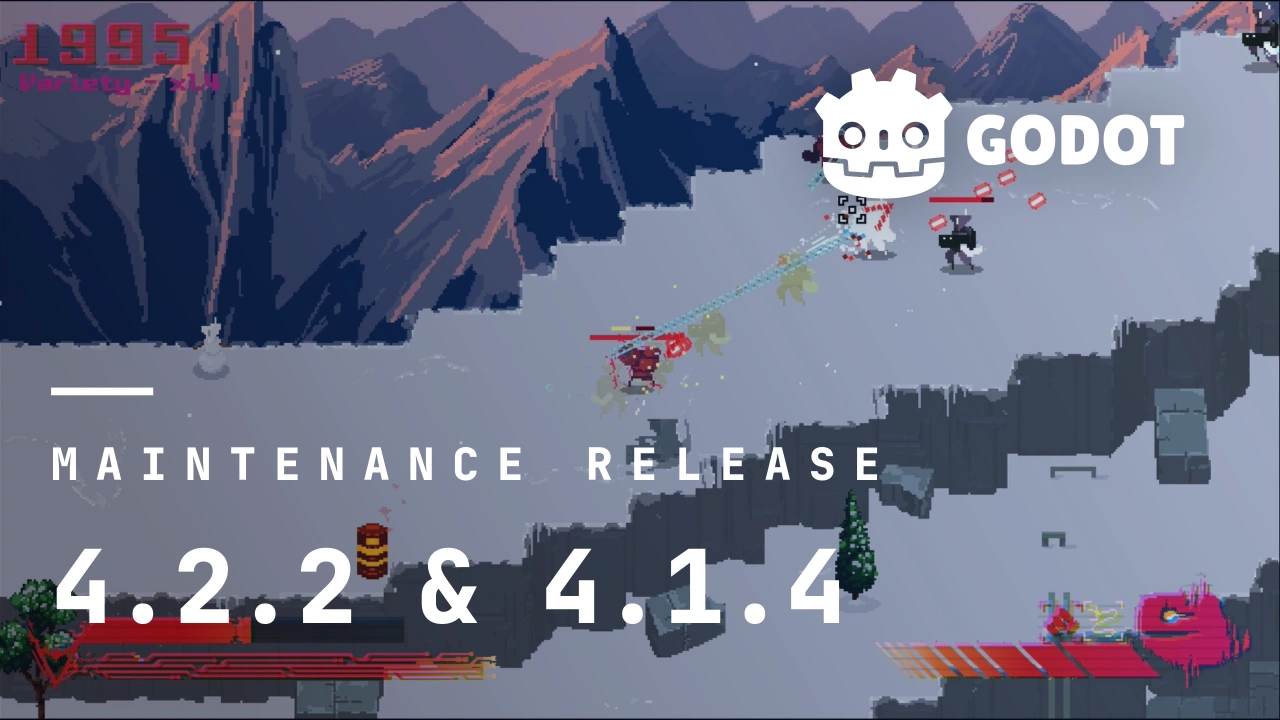Today I’m excited to dive into the latest maintenance releases of the Godot game engine: versions 4.2.2 and 4.1.4. These updates, released on April 17th, focus primarily on bug fixes rather than new features. Let’s explore what’s been addressed in these versions and how it impacts your game development workflow.
Key Fixes in Godot 4.2.2
Bug Fixes and Quality of Life Improvements
The Godot 4.2.2 maintenance release brings over 400 improvements, making it a significant update. Here are some of the highlights:
- Audio Crackling Issues on Windows: One of the longstanding issues where audio would crackle or distort on Windows has been resolved. This fix, now part of both 4.2.2 and 4.1.4, ensures a smoother audio experience for developers and players alike.
- Improved Command Line Export Pipeline: If you’re using continuous integration and deployment (CI/CD) tools like GitHub Actions or GitLab CI to automate your builds, you’ll appreciate the improvements in the export pipeline. The new
--importcommand allows the editor to import resources automatically before exporting, making the process more seamless. - Headless Mode Enhancements: For those running Godot in headless mode (without a display or GPU), there’s better support for multi-mesh data and shader parameters. Additionally, the exit code is now correctly set when an export fails, allowing your scripts to handle errors more effectively.
- Workaround for Corrupted Scene Errors: Moving or renaming files outside of Godot often caused scenes to be marked as corrupted. The update now allows loading scenes with missing external resources, reducing the frequency of these errors.
- Animation Fixes: The transition to the animation mixer in 4.2 introduced some regressions. These have now been addressed, ensuring a smoother animation workflow.
Key Fixes in Godot 4.1.4
The 4.1.4 release is a stable branch that focuses on critical fixes. While it doesn’t include as many updates as 4.2.2, it still addresses some important issues:
- Audio Crackling Fix: Similar to 4.2.2, the audio crackling issue on Windows has been fixed in 4.1.4.
- Slot Error Fix: An infamous error related to slots greater than the slot max affecting exported projects has been resolved.
- Documentation and Script Improvements: Various documentation updates and script improvements ensure a more user-friendly experience.
Encouraging Upgrades
Both updates come with a host of fixes that improve the stability and usability of the Godot engine. The developers encourage everyone to upgrade to these latest versions to take advantage of these enhancements. If you encounter any issues during the upgrade process, you’re urged to file an issue on GitHub to help the team address them promptly.
Explore the Interactive Change Log
For those interested in the detailed list of changes, Godot provides an interactive change log. This tool allows you to see the specific fixes and improvements in each version. From documentation updates to specific bug fixes, the change log is a comprehensive resource for understanding what’s new.
Conclusion
The Godot 4.2.2 and 4.1.4 maintenance releases bring numerous bug fixes and quality of life improvements that enhance the development experience. Whether you’re dealing with audio issues, export pipeline challenges, or animation bugs, these updates have something for you. Make sure to upgrade to these versions to ensure your projects run smoothly and efficiently.
This article is based on the official Godot blog on godotengine.org. Visit the original post for more information on all the fixes included with these releases. I also have a Youtube video that reviews the changes mentioned in this article.
If you want to learn more about how to create your own game using free tools, check out this article.
